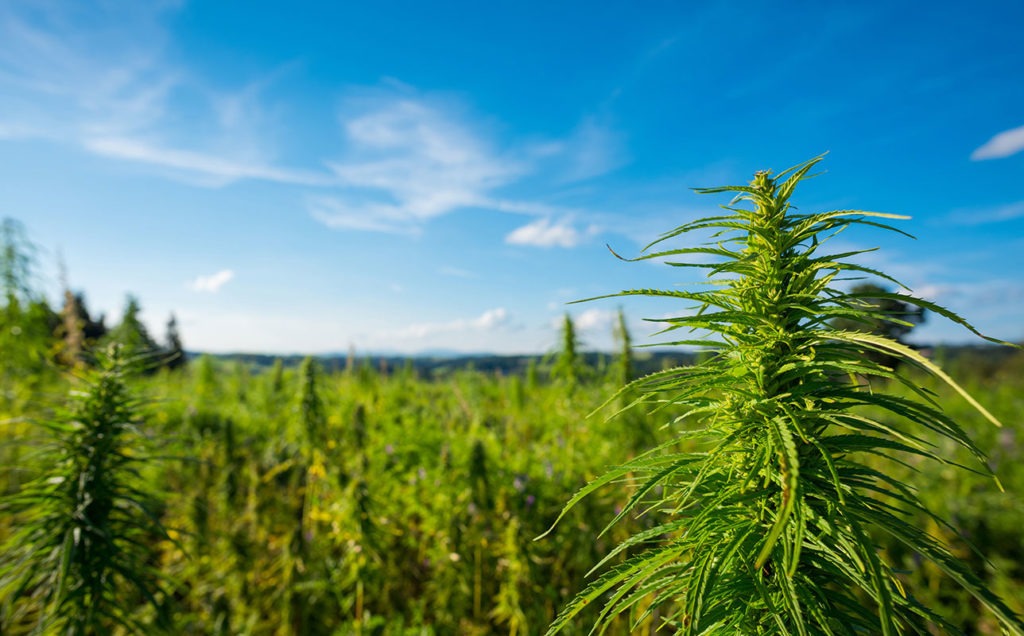In what is likely to be one of the biggest advances in Arizona agriculture this decade, last May, Arizona’s state legislature approved Industrial Hemp as an agricultural crop beginning August 2019. Arizona became the 30th state to adopt an industrial hemp program. To make the state program work, the Dept of Ag created an Industrial Hemp commission, who held their sixth monthly public hearing Dec 7th to review and edit the proposed regulations that will shape the new program.
The 7-member committee, which includes one woman, one black man, and one Hispanic farmer who is a 5th generation Arizona cotton grower, is co-chaired by Dwayne Alford and Paco Ollerton, with the Dept of Ag’s Brian McGrew, serving as the Dept. of Ag’s Industrial Hemp Program Manager. The commission expect several more public meetings to finalize the document ahead of the August 2019 roll-out.
Approximately 40 members of the public showed up for the meeting, including land use managers for three different counties. The Dec 7th meeting primarily focused on seed protocols, the logistics of licensing certified growers, and reviewing state programs around the country to identify and adopt the best practices from states with functioning programs. The key question was what to do about hemp crops that are over the allowable limit of THC. Hemp is generally defined as strains of Cannabis sativa with a THC level of less than .3%. The most common answer involved retesting questionable crops and destroying those that cannot pass the THC test. If a crop is determined to be above the THC limit, there will be a 10-day appeals process before the crop must be destroyed. In some states, stripped stalks and sterilized seeds can still be used. AZ is yet to make that determination.
Among other highlights: All hemp operations will need state licensing and the application will require maps and GPS coordinates for the facilities. Cultivation, processing and custom harvesters/transportation services will be licensed separately, though growers can apply for licenses in those areas as well. Licensed growers will be required to pass a DPS fingerprint background check. First year licenses will last one year. Growers in good standing will then be able to renew for two-year licenses. Convicted felons and those with controlled substance convictions will not be eligible. At least one partner in a company will have to qualify as the “responsible party” or statutory agent.
Hemp seeds used for cultivation will tagged and certified that they will produce plants that fall within the required limit of less than .3% THC. No transfer of seeds is permitted without Ag Dept approval, but after their first year, growers in good standing will be able to collect and reuse their own seed stock, provided the plants they were harvested from passed the testing standards. Samples will be taken from multiple locations within a field. The state will work with independent testing companies to monitor fields around the state. Growers are encouraged to do their own pre-testing. Portable test kits are already commercially available. Crops will have to be inspected on-site prior to transport. Growers will be required to cooperate with law enforcement for inspections as needed.
The program will allow for hemp seed oil and other hemp concentrate products. Among other issues still in consideration, but far from finalized: medical cannabis patients with AMMA grow rights may choose to grow hemp for their personal use, but not as part of the state’s hemp program. No industrial hemp crops can be grown in residences or on land exclusively zoned as residential. No co-mingling of industrial hemp and medical marijuana crops will be allowed in cultivation or in processing to protect against cross-pollination or cross-contamination of hemp samples. Farmers who stop growing hemp will be required to monitor their former fields to prevent “volunteer” hemp plants from growing back, or along irrigation ditches or roadsides after the main crops are gone.
Meanwhile in Washington, Congress is preparing to include industrial hemp legalization in the 2018 Farm Bill which is expected to be voted on before they take their annual holiday recess. It has already passed the Senate. If the federal farm bill, which is currently pending in Congress, passes, AZ growers will be allowed to market their hemp and hemp products nationwide. For more info check out the Dept. of Ag’s Industrial Hemp home page or review their guideline document here.


